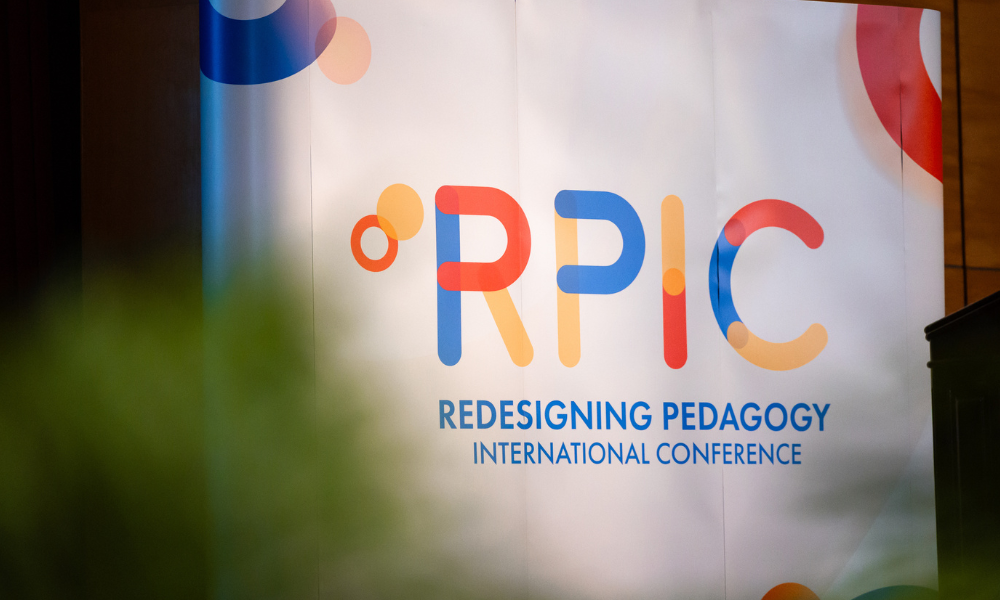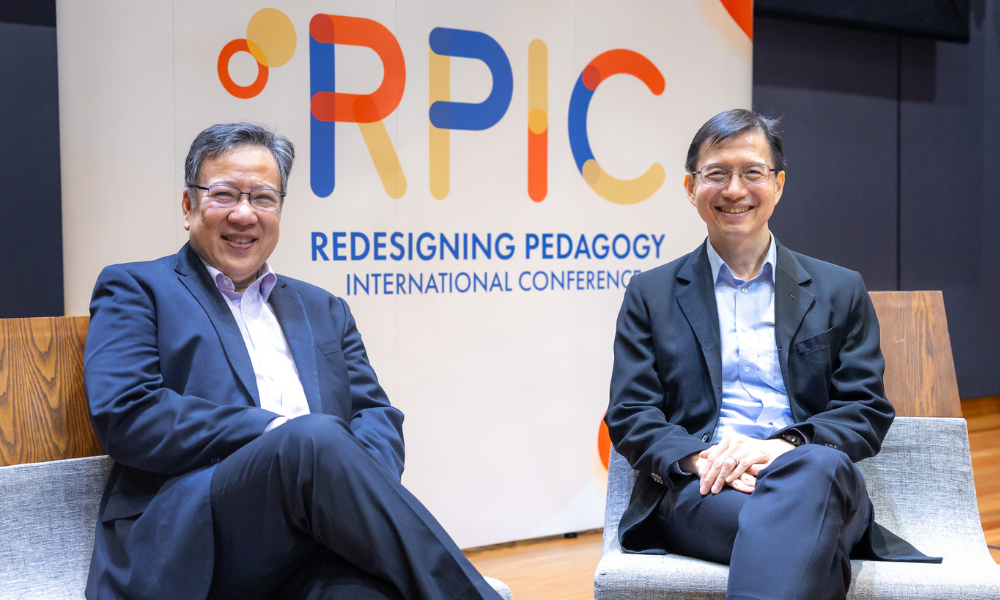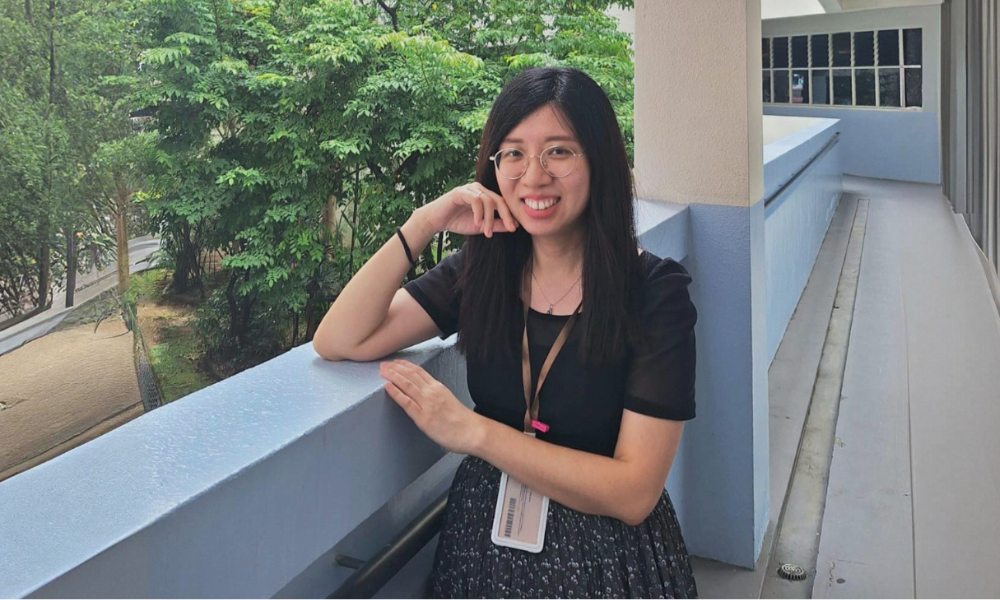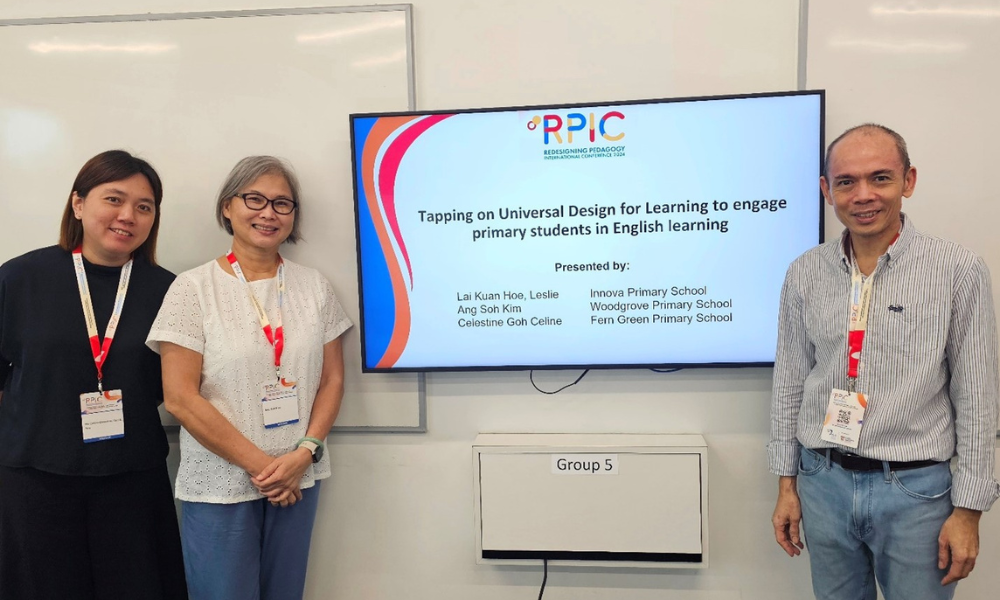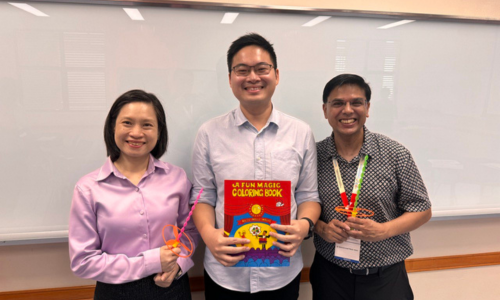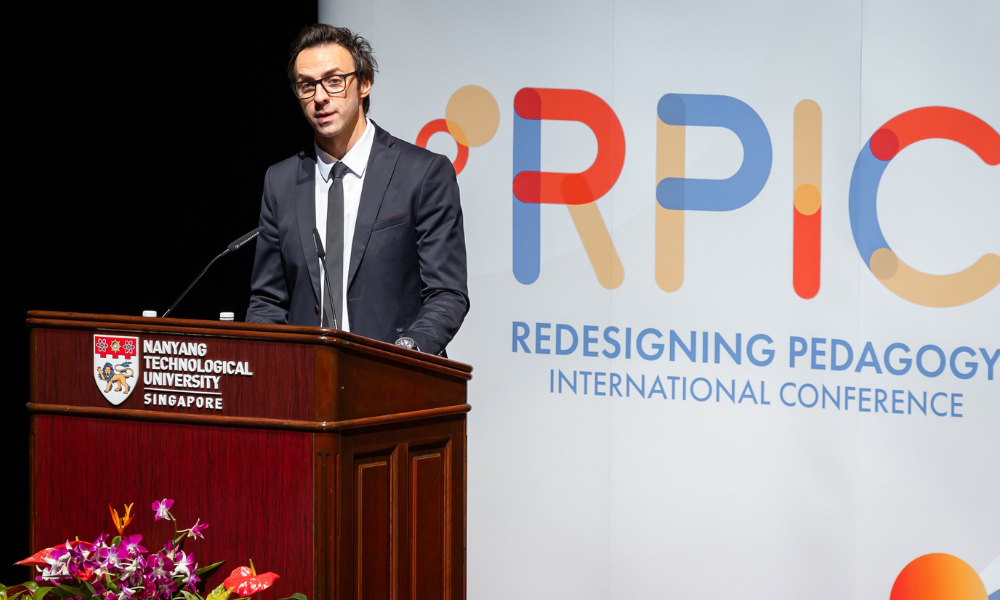Who is Driving the Future of Education?
We live in an increasingly technology-enhanced learning environment where the drivers of the future are the youth of today, noted Professor Roy Pea in his keynote address at the 2009 Redesigning Pedagogy International Conference. But are our schools equipped to deal with this reality? Dr Vicente Reyes grapples with this issue as he reflects on the future of education reforms.
Prof. Roy Pea’s central keynote message was about “the value of re-conceptualizing the nature of learning”. His speech highlighted how advances in information technology have dramatically reshaped schooling and education, thus the need to re-conceptualize the nature of learning.
It must be noted that discussion about reform in education is not entirely new.
Frustration about the seemingly endless iteration of apparently hollow education reforms have been raised by prominent scholars (Cuban, 1990; Tyack & Cuban, 1997). Reform driven by networks of schools (Lieberman & Grolnick, 1996) and by the irrepressible waves of globalization have similarly been identified (Gopinathan, 1999; Reyes & Gopinathan, 2008).
In most of the literature on school reform, the drivers have undoubtedly been policy makers, researchers and school practitioners (Luke, Freebody, Lau, & Gopinathan, 2005; Mintrom & Vergari, 1998; Yip, Eng, & Chin, 1990). But an insightful point raised by Prof. Pea about the nature of schools deserves reflection:
Digital natives are consumers and producers; schools are unchanged from their parents’ generation and schools are not the best sources of information.
From this assertion, he moved on to declare a truly refreshing and captivating message in relation to the lingering questions of school reform and who drives these. Prof. Pea accurately described that this time around, it is the youth who are driving the future, not educators or researchers.
The very current and relevant examples provided by Prof. Pea of how the youth have taken the initiative and have seized learning and have transformed these into an “expansion of imagined fields of action” are certainly convincing anecdotes of a new wave of “technologically-enhanced learning” that are imminent.
As the 21st century leaps forward, we realize that today’s generation of digital natives may not necessarily fit the mould of our conventional schools. (One can argue that our current conventional schools are patterned after the 19th century “assembly-line” factories, where our kids go through a metaphorical conveyor belt and are provided with knowledge and skills as they move along one grade level to another.)
Prof. Pea has argued quite compellingly that the drivers of the future are the youth. A pivotal question related to this would be: What then should the roles of researchers, policy makers and school practitioners be in an increasingly technology-enhanced learning environment?
Prof. Pea’s keynote has been a powerful platform to jumpstart a conversation towards resolving this question.
Let the conversations continue.
References
Cuban, L. (1990). Reforming again, again, and again. Educational Researcher, 19(1), 3-13.
Gopinathan, S. (1999). Preparing for the next rung: Economic restructuring and educational reform in Singapore. Journal of Education and Work, 12(3), 295-308.
Lieberman, A., & Grolnick, M. (1996). Networks and reform in American education. Teachers College Record, 98(1), 36-40.
Luke, A., Freebody, P., Lau, S., & Gopinathan, S. (2005). Towards research-based innovation and reform: Singapore schooling in transition. Asia Pacific Journal of Education, 25(1), 5-28.
Mintrom, M., & Vergari, S. (1998). Policy networks and innovation diffusion: The case of state Eeducation reforms. Journal of Politics, 60(1), 126-148.
Reyes, V., & Gopinathan, S. (2008). Economic and cultural globalisation and Singapore’s education reform response: Opportunities and challenges. Paper presented at the Paris International Conference on Education, Economy and Society.
Tyack, D., & Cuban, L. (1997). Tinkering toward utopia: A century of public school reform. MA: Harvard University Press.
Yip, J. S. K., Eng, S. P., & Yap, J. E. C. (1990). Twenty-five years of educational reform. In J. S. K. Yip & W. K. Sim (Eds.), Evolution of educational excellence: 25 years of education in the Republic of Singapore (pp. 1-32). Singapore: Longman Publishing.

 Roy Pea is Stanford University Professor of the Learning Sciences and Co-Director of the Human Sciences and Technologies Advanced Research Center. More information about his keynote address on “Fostering Learning in the Networked World: Trends, Opportunities and Challenges for Learning Environments and Education” may be found online at:
Roy Pea is Stanford University Professor of the Learning Sciences and Co-Director of the Human Sciences and Technologies Advanced Research Center. More information about his keynote address on “Fostering Learning in the Networked World: Trends, Opportunities and Challenges for Learning Environments and Education” may be found online at: 